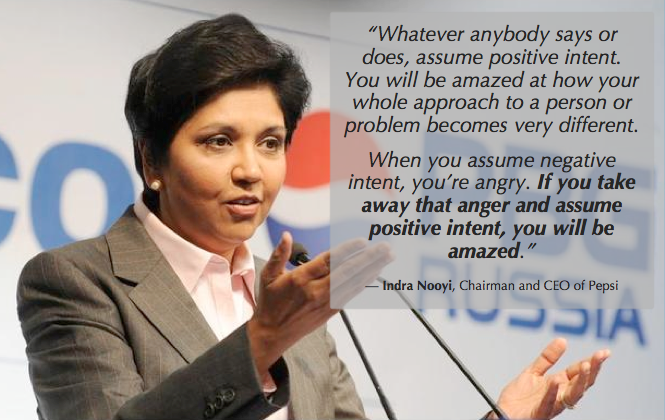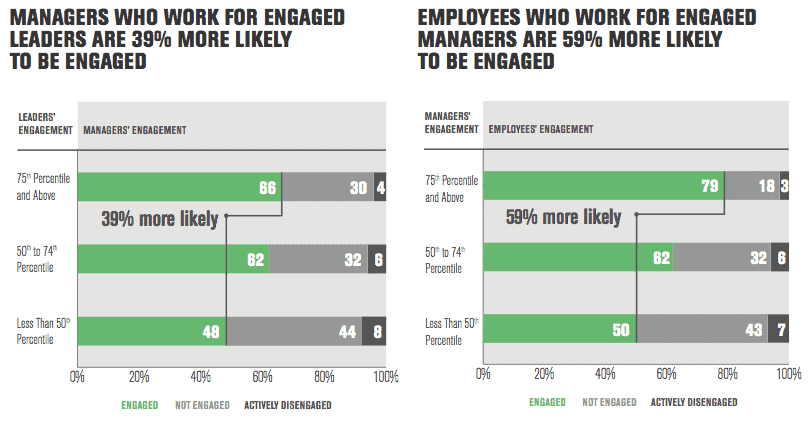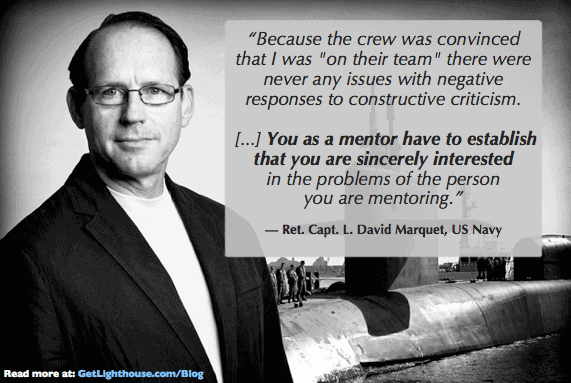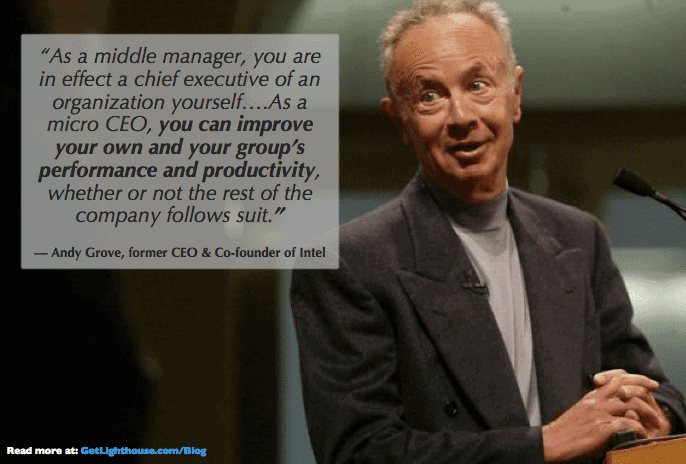Knowing how to build rapport with anyone is the foundation of forming great relationships and being comfortable in a variety of situations. However, while it's easy to create rapport with friends and acquaintances outside your job, it's not always as easy and obvious in the workplace.!
On the surface, your coworkers may be totally different from you, especially if you're a manager and they're on your team:
- What if you're a young manager with an older team?
- What if you're married with kids trying to relate to a fresh out of college hire?
- What if you're managing a team with vastly different education levels or life experiences than you?
Relax. There are plenty of ways you can and should build rapport in any of those situations. And it's well worth it, because it has such a big impact on your team.
Today we're going to give you a ton of ideas on how to build rapport with colleagues and anyone you know, regardless of how different you may seem, as well as everything you should know about establishing it.
Table of Contents
What is Rapport anyways?
For those of you new to the idea, we want to take a moment to make sure you understand what it is.
Rapport is all about building connection and a feeling of relatedness to others. This is how someone goes from a stranger to a friend, and a coworker goes from a faceless colleague to a trusted one.
When you know a bit about someone else, and show you care, or even better find something you both share in common, it becomes the foundation of a great work or personal relationship.
And when that happens at work, it’s particularly powerful.
You’re more likely to give your team members you have a rapport with the benefit of the doubt, as well as enjoy working with them more. Communication becomes easier, and misunderstandings are often avoided.
Then, when you build it across your team, you even create psychological safety, which boosts your entire team. Psychological safety is a great topic for another day, so let's start with the simplest step, which is teaching you how you can build this rapport, trust, and connection with a single coworker or team member.

Why it's so important to build rapport with your team
Unfortunately, many people, including some managers, make the mistake of overlooking the value of building rapport. However, they're missing out; the truth is, rapport is the foundation of great working relationships. Without it, communication and collaboration are so much harder than they have to be.
Diving deeper, here's specifically why it's so important and beneficial to build rapport:
1. Rapport makes your team members more engaged
According to Gallup's "State of the American Manager” report, just 30% of American workers, and 35% of managers, are engaged at work. That means less than 1 in every 3 people are excited about coming to work each day.
It turns out, the same Gallup report found that rapport is a major driver of employee engagement:

As the chart above shows, if you haven't built rapport, if you don't have a foundation of trust and understand who they are, there's little chance your team will come to you with problems or be engaged or motivated at work.
Camille Fournier, author and former CTO of Rent The Runway, believes this as well as she described it in a post on her blog, calling it: Relatedness.
"As a leader, you will lead people who want Relatedness in their job. They want you to know about their family, their hobbies. They want to chat with you about their weekend, their trips away. They want to get lunch sometimes.”
Put more simply and directly, she has learned in her career:

2. Rapport makes others more receptive to your feedback
Feedback is a valuable way to motivate your team and drive great work by your team. However, feedback only works if your employees will listen to you.
That's another reason building rapport is so important: it makes those you lead willing to listen to what you have to say.
In the book "Turn the Ship Around!” retired Captain L. David Marquet turned around one of the lowest performing submarine units in the U.S. Navy by using a strategy he refers to as the "Leader-Leader” approach.
A key part of that approach is showing your team or crew that you truly care about them:

By taking the time to build a little rapport with his new team, Captain Marquet was able to turn an entire unit of hardened Navy men onto his side. As a result, they didn't just listen when he spoke, they applied that feedback and did what he was asking of them. Their performance improved so much, they became one of the best ships in the fleet, and people asked to join the crew instead of regularly leaving as soon as they could.
3. Rapport helps build loyalty
At the core, a lack of loyalty means you haven't built a strong enough relationship with your team. More than anything, that means taking the time to find out what issues they're having and helping work through them.
In the timeless classic How to Win Friends and Influence People, Dale Carnegie wrote, "the only way to influence people is to talk in terms of what the other person wants.”
The only way to know what the other person wants is to take the time to get to know them and their motivations.
To find these things out, you need to take the time to learn about them and what's on their mind over time. As Jason Lemkin wrote in a post on his blog:

By taking the time to develop a strong relationship with your team by getting to know them and what drives them, you'll know exactly what each member needs to stay engaged and loyal to you and your company.
4. Rapport helps build a more positive, enjoyable environment for everyone
Rapport does more than just make working with your team easier and more productive. It also helps make coming to work more enjoyable in general.
As Camille Fournier wrote: "You may find that once you start caring about people, you feel a bit happier yourself at work.”
And don't think that your company's general environment has to get in the way of that. As Andy Grove wrote, as a manager you have the ability to create a good working environment with your team regardless of anything happening around you:

Rules you Should know to Establish Great rapport
You really can find ways to build trust, loyalty, and understanding with anyone. You also are likely to have something in common with just about anyone you meet, if you know where to look. That's why this list is so comprehensive.
However, before we get into it, to make the best use of this list, keep a few things in mind as you read over the different possibilities:
- Use your best judgment
- If it doesn't sound appropriate to you, or either of you might be uncomfortable talking about it, pick something else. That's why there are so many of these 🙂
- Ask at the right time
- Some of these ways of building rapport are personal, so it's often better to ask about them in private meetings, or when there's more time. Your one on ones with your team is a perfect time to talk about them, especially if you're just starting them. In case, you don't know how to do them properly, check our one-on-one meeting template.
- Pay attention
- If you overhear something that might be a good topic, and can't discuss it now, make a note to ask later. They'll appreciate you cared to ask. I saw a coworker was wearing his favorite NBA player's jersey and talked about it in our next one on one. It even inspired a great, inexpensive gift later.
- It only takes one to instantly strengthen a bond
- Think about the last time you met a stranger and then found out you had something in common like a favorite team, went to the same college, or once lived in the same city. You instantly looked at them differently and warmly.
- Don't love what they do? You can still appreciate it and support them
- Think about how excited you get when someone asks you about one of your passions. You'll happily talk all about it and love that they asked, even if they don't share the interest. As Dale Carnegie wrote in How to Win Friends and Influence People, "you can make more friends in 2 months by becoming interested in other people than you can in 2 years by trying to get other people interested in you."
13 Effective Examples of Questions to Start Building Rapport
Now that you've learned the rules of building rapport and we've hopefully convinced you of its importance, let's explore some effective questions to begin establishing rapport with anyone you know.
Here's a few of our favorite questions to start building rapport:
- What are your hobbies or interests outside work?
- What do you like to do when not working?
- What is your resentment? (A great concept courtesy Marissa Mayer)
- Where did you grow up? Do you ever go back to visit there?
- Where did you go to college?
- What's your favorite place you've ever visited? Why?
- If they have children: ask how old they are and anything they want to talk about them.
- What did you do for fun in the past that you haven't had as much time for lately?
- What are your favorite kinds of tasks at work? Why do you like it?
- What is your least favorite kind of work? Why?
- What's something you'd like the chance to work on you haven't before?
- Is there anything you're interested in learning more about at our company?
- What have been your favorite parts of past jobs you'd love to incorporate here?
Proven Topics to Help You Build Rapport with Anyone
In addition to the questions above, we've compiled a list of topics that align with those 13 questions. This gives you the flexibility to tweak and personalize the conversation based on the situation, your personality, and considering who you're interacting with.
Explore these topics to foster connections and build rapport with anyone you work with. We've organized them by category for easy reference.
To remember what topics you covered with each member of your team and their answers, document them using our free 1:1 meeting template.

Remember, these topics serve as simply a starting point; turn the topics into questions in a style that fits you and the nature of your relationship. Let them guide you in getting to know your team better and building rapport effortlessly.
Building Rapport through Life Journey Discussions
The journey we all take in life does a lot to define us. Finding others who have had similar experiences can be both very meaningful, and help you understand what makes someone who they are today.
- You went to the same college.
- You went to rival colleges (great for a friendly bet when their sports teams play each other.)
- You both did the same club in high school or college (i.e. debate, model UN, theater, band, etc.)
- You grew up in the same town, city, county, or if abroad, country.
- You both grew up in a small town, big city, in the country, or in the same region.
- You're both immigrants, children of immigrants, etc.
- You have the same or similar first car.
- You both experienced similar significant cultural or historical events (i.e. Burning Man, Million Man March, going to the Super Bowl / Final Four / NBA Finals, a presidential inauguration, major natural disaster, etc.)
- You both share common struggles growing up (i.e. awkwardness as a kid, being bullied, rebelling as a teenager, etc.)
- You both can speak the same foreign language(s).
- You’ve both traveled to the same places.
- You both moved to a new city/country and had to adapt to an unknown environment.
- You both had to deal with the loss of a friend/family member.
- You’re the same age as each other (or of similar ages) and are experiencing the same things.
Building Rapport through Family Stories and Tradition
Whether you come from a big family, or a small one, helicopter parents, or a broken home, connecting with others in regards to the family you grew up in, or the one you're building today, can be very meaningful.
- You both have children, or are starting families.
- You both have parents of similar backgrounds.
- You're both from big or small families or are only children.
- You have similar cultural backgrounds you both identify with or don't.
- You celebrate the same holidays, especially if they're not common where you are.
- If your children are similar ages, there are infinite ways to connect on similar experiences.
- You both have/love the same pets.
- You both have a sister(s) or brother(s) or was the same oldest, youngest, middle kid.
- You’d rather not have children and want to focus on other things in life.
Building Rapport through Common Hobbies
Everyone has a life outside of work, and how they choose to spend it is very meaningful to them. Hobbies are often great sources of creativity and fun for them. Getting to talk about them, can bring great joy, especially if you share the same one.
- You share the same craft based hobby (i.e. knitting, home brewing, woodworking, building apps, hacking things, gardening, etc.)
- You're both into making art or photography.
- You both appreciate other's art (i.e. museums, art shows, etc.)
- You both enjoy hiking and the outdoors.
- You both hate the outdoors and camping (sometimes dislikes can be a common bond.)
- You both play or have played the same instrument.
- You both love to work on cars.
Building Rapport through Shared Sports Interests
Few things bring people together and with as strong a display of passion, as sports. Whether you play them yourself or root for others, it's a huge part of just about every culture around the world. Finding someone that shares a similar sports passion is one of the fastest ways to make a friend.
- You both love the same sports team or player.
- You both play the same sport.
- You both enjoy sailing, surfing, or other beach/water activities.
- You both love watching the same sport (especially good if it's obscure or different than most in your area.)
- You both played the same sport in high school or college (i.e. soccer, football, field hockey, track, etc.)
- You both run or like to race, do 5ks, marathons, Spartan races, etc.
- You like to attend live sports events or have attended the same sports event in the past.
Building Rapport through Trends and Entertainment
There are so many forms of entertainment today and they all share one quality: they're remarkable. For those that share the same favorite form of entertainment, it's something they love talking about, especially right after a big event (season finale, new album, concert, etc.)
- You listen to similar podcasts.
- You read similar books you can discuss together.
- You share a favorite TV show, documentary, or movie.
- You love the same music or artist, or have a great music collection.
- You both love video or board games.
- You both love spending money on the same things (i.e. live music tickets, the latest fashions, high-end restaurants, annual vacations, etc.)
- You both have met famous people in the past.
- You have the same favorite comedian, actor, author, band, etc.
- You both watch reality shows you can bond over. (90-day Fiance, Catfish, Love Island)
- You attend the same conferences. (E3, Comic Con, TED, GamesCon, MineCon)
Building Rapport through things that you Geek out on
We all have unique interests that help define us. In some of those cases, it crosses into "geeking out" on them as you learn way more about a subject than most people. Meeting others who share a "geek" level of passion builds an instant bond and infinite enthralling conversation.
- You share a passion for trends in technology.
- You both collect things (i.e. stamps, whiskey, trains, Pokemon, etc.)
- You're both into fashion.
- You both like the same designer(s).
- You're both film junkies or movie buffs.
- You both have a love of cars.
- You're both early adopters of new tech.
- You're both history buffs.
- You both have a blog or like to write regularly (could be personal or work topics.)
- You both hold respect/admiration for the same people (i.e. celebrities, business leaders, local heroes, etc.)
- You share a passion for biohacking and being the healthiest version of yourself.
- You’re both into philosophy.
Building Rapport through Professional Interests
As a manager, it helps a lot to build a connection with your team beyond work, but that doesn't prevent you from building rapport based on professional habits and aspirations, too. These are a few ways you can uniquely relate to some of your team members based on work.
- You both have similar preferences for your desks at work (i.e. messy, clean, specific way to organize things.)
- You both have or want similar career paths (even if one of you is earlier on that journey.)
- You have similar reasons for choosing your careers.
- You have similar reasons for joining the company you work at.
- You've both worked at startups that experienced big moments (i.e. acquisition, running out of money, hyper-growth, big outage, etc.)
- You both had the same first job (i.e. waiting tables, cook, grocery store, etc.)
- You both have started your own companies before.
- You both have side businesses outside of work.
- You both want to improve on a critical career skill (i.e. how to write better, give better presentations, managing people, etc.)
- You both decided to change professions at one point in your career.
- You share some friends or acquaintances in your professional network.
- You share the same views on the industry you’re in. (e.g. you’re disappointed or excited by it)
- You want to attend the same business conferences.
- You’re both trying to get certified for a particular skill and can prep together.
Building Rapport through Quirky Habits
We're all a little weird. But that weirdness is what makes us who we are. You can build a strong bond when you find out you share similar quirky habits. I bet you'll smile or nod reading at least one of the below that either you or a friend would relate to.
- You both have the same fears or worries without being political (i.e. public speaking, career opportunities, dating, etc.)
- Both have the same pet peeve.
- You both love or hate winter (or other seasons.)
- You're both morning people or night owls.
- You're both introverts, extroverts or ambiverts, and can relate to how that makes you feel in different situations.
- You both share social behaviors that others may see as awkward but you think are awesome (i.e. love giving hugs to new people you meet, telling Dad jokes, telling self-deprecating stories, etc.)
- You both share the same allergies, how to deal with them, and the awkwardness it can cause (i.e. try eating sushi when you have shellfish and avocado allergies.)
- You both share the same daily routines (i.e. exercise before work, breakfast at the same place each morning, take the same drive/train/bus, etc.)
- You both share the same sense of humor (i.e. puns, "Dad jokes”, pranks, wit, dry humor, etc.)
- You both have crazy roommates or neighbors (always good stories.)
- You have nicknames you’re known for.
Building Rapport through Food Experiences
One of life's daily necessities is also a great source of joy and passion for many: Food! Nothing brings people together quite like sitting around a table to share a meal. Food is a great, universally safe topic to build rapport with.
- You're both foodies and love talking about great restaurants and meals.
- You both have the same favorite food, drink, or dessert.
- You're both into healthy eating.
- You both enjoy cooking, trying new recipes, or learning new techniques.
- You both share the same love for regional foods you grew up with (i.e. Dunkin' Donuts, In-N-Out Burgers, Waffle House, BBQ, etc.)
- You both look forward to holidays as opportunities for special family dishes.
- You dislike the same food.
- You have similar dietary preferences or restrictions and can share favorite restaurants or recipes related to them.
- You share a passion for grilling, smoking, and/or curing meats or barbecuing
- You both focus on nutrition, efficiency, and meal prep.
Building Rapport through Sharing Life Goals
Everyone has dreams and aspirations. Connecting on shared dreams or even just helping them achieve their goals in small ways can have a huge impact on their morale, motivation, and most importantly, their life. This a great topic for any manager who wants to really invest in their people, and understand where they want to go.
- You have similar retirement dreams.
- You both love to travel, or have the same travel goals.
- You both have lived abroad before, or have an interest in doing so in the future.
- You both have the same New Year's resolutions or failed to fulfill them already.
- You both have similar goals for the year (i.e. run X number of races, get promoted, save enough for a car/house/vacation, etc.)
- You both want to learn a new skill, start a hobby, or join a club.
- You both wanted to be the same thing growing up.
- You both have aspirations to own your business someday.
Conclusion - You can build rapport with anyone, if you try.
Building strong rapport with your colleagues is key to creating a positive and friendly work environment. It goes beyond mere professional interactions and helps create deeper bonds based on mutual trust and understanding.
By investing time and effort into creating rapport with your colleagues and team members, you can unlock a myriad of benefits.
Engaging in meaningful conversations that touch upon shared experiences, such as life journeys, family stories, hobbies, sports interests, and current trends, can foster connections on a deeper level. By showing genuine interest, actively listening, and demonstrating real empathy for your colleagues, you can create a work environment everyone enjoys more.
A few final thoughts to keep in mind about how to build rapport:
- It starts with one.
- All it takes is one thing in common to start building a stronger relationship with them. However, don't stop there. Your teammate will be more open with you the more connections you grow with them.
- Depth is better.
- Liking the same drink is not as powerful as liking the same author, or both having deep knowledge or experience of the same thing. Use simple, high-level shared interests to open up deeper conversations.
- Don't fake it.
- If you're not genuinely interested in what they're talking about, they'll know. That will only lead to them resenting you, so pick topics you would like to learn about. Remember: this is their moment to shine. Make like Dale Carnegie and be a great listener and they'll love you for it and appreciate you asked.
Rapport building is an ongoing process that requires continuous effort and genuine care. By prioritizing rapport-building, you contribute to a supportive and inclusive work culture where individuals feel valued, connected, and motivated. And by checking in semi-regularly on these things you not only reinforce your bonds with them, but it keeps you informed of any important life changes.
This is the foundation of being a great, caring leader, and is why building good rapport is one of the most important steps in becoming an effective leader.

What should you avoid when building rapport?
What to Avoid When Building Rapport:
- Fake interest: Avoid being fake or insincere in your interactions. Genuine rapport is built on authenticity, so be yourself and show genuine interest in others.
- Interrupting or talking over others: Avoid interrupting or talking over people while they are speaking. Practice patience, be an active listener, and allow them to finish their thoughts before responding.
- Dominating the conversation: Avoid monopolizing conversations and making them solely about yourself. Building rapport requires a balance of sharing and listening, and especially early on, it's better for you to listen more.
- Ignoring non-verbal cues: Keep an eye on non-verbal signals, such as body language and facial expressions. They provide valuable information about a person's comfort level and engagement, so pay attention to when they're excited, or would prefer not to talk about that subject.
- Rushing the process: Avoid rushing the rapport-building process. Building strong connections takes time and effort. Be patient and invest in building relationships gradually. Keep asking about the topics they seem to care most about.
By avoiding these pitfalls, you can foster genuine connections and create a positive rapport with others
What is rapport building skills?
Rapport building skills refer to a set of abilities and techniques used to establish and nurture connections with others. These skills enable you to create a positive work environment, improve understanding, build trust, and establish mutual respect in various social and professional settings.
When you take an interest in others, you may be surprised how it boosts your personal and professional relationships.
How do you establish rapport with a difficult person?
To establish rapport with a difficult person, start by actively listening to their concerns and showing empathy. Look for common ground to build upon and maintain positive communication. Show appreciation for their contributions and work towards conflict resolution. Patience, flexibility, and professionalism are key to creating a positive relationship, especially when they're difficult.




